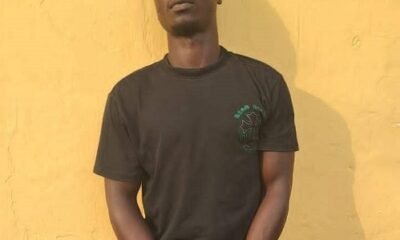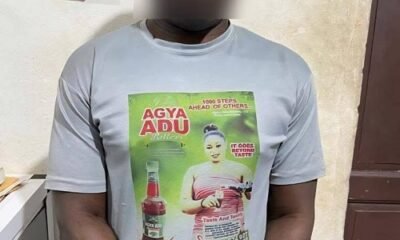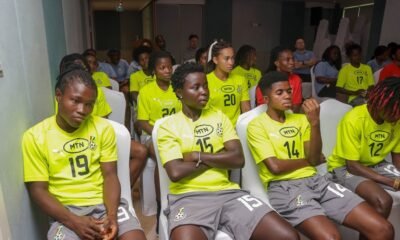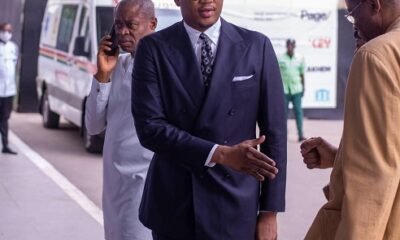Profile
Kyeremaa clearing disability barriers …to win Ghana’s first taekwondo gold from Paralympic Games
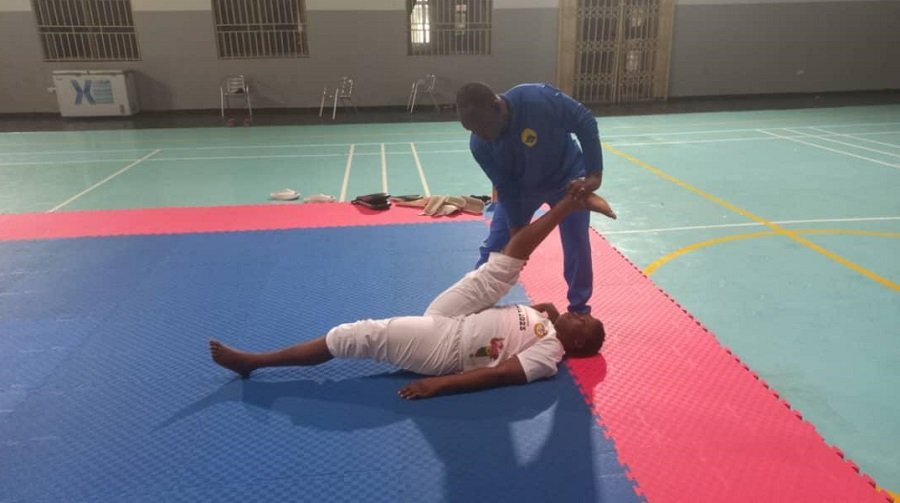
Time to do a few stretches
It is exactly seven years ago when a Techiman based disabled seamstress, Ms Patricia Kyerewaa, decided to heed to persuasions from a friend she referred to as ‘Uncle’ (Bro Dan) to begin a career as a para (disabled) taekwondo athlete.
And that has proven to be a decision without regrets although there was an initial rejection from her parents. Now all she enjoys from them is their unwavering support.
It was one afternoon in her shop, working with thread and needles to put together some decent clothes for her customers when Bro Dan came around, asking about her thoughts on a discussion they had previously.
“Is it about the discussion for me to join a taekwondo club?” Kyeremaa quizzed.
And Bro Dan gently responded: “Yes, I have waited for you to call me to let me know your response.”
To Bro Dan’s surprise, Kyeremaa responded in the affirmative and right away, they travelled from Techiman to Sunyani in the Bono region to meet the one who happens to be her current coach, George Ablomoti.
That was the story behind Kyeremaa’s journey in the world of taekwondo as a para athlete.
Just seven years down the line, Kyeremaa is knocking on the doors of fame, having carved a niche for herself as the first and only para taekwondo athlete in Ghana’s Paralympic team for the Paris 2024 Paralympic Games that is slated for August 28 to September 8.
For that feat, she gives credit to the National Paralympic Committee (NPC) of Ghana which applied for the Wild Card on behalf of the Ghana Taekwondo Federation (GTF) for her and a second athlete, Emmanuel Kofi Turkson.
However, the International Paralympic Committee (IPC) approved that of Kyeremaa and failed to grant the request for the other.
As a Person Living with disability (PLWD), Kyeremaa opted to learning a skill to be able to fend for herself after completing Junior High School (JHS) at Akumadan SDA, knowing the challenges one faces as a PLWD in Ghana.
But the busy schedule of an athlete preparing for a competition of this magnitude is not making it possible for her to practise her trade; presently she is in residential camp in Tema.
As it is with every venture, she recounted initial struggles in trying to adapt to the demands of the sport.
“It was quite challenging from the beginning. I was not a sports person and didn’t understand why Bro Dan kept persuading me to become a taekwondo player but with time, I adjusted,” she told this Reporter.
“I feared the sack after the initial struggles but to my knowledge, it was actually the coach who tasked Bro Dan to convince me to join, actually spurred me on; and it is that confidence and hard work that keeps me going.”
“Honestly, I put in all the hard work but was not quite sure where this venture would land me.”
Kyeremaa has gone onto record with a few achievements which she hopes to climax with a gold medal at the upcoming Paralympics in Paris.
The story about her success started with a big bang; registering a gold medal feat in the 2017 edition of the Korea Ambassador Taekwondo Championship among six other contestants.
She continued to dominate in the championship as she won a second gold and silver medals in subsequent championships.
Her dominance extended to the Africa region where she recorded Ghana’s first gold medal at the Africa Championship, Niger 2022, bringing home a medal and a beautiful trophy.
That earned the 29-year-old athlete qualification to the France Grand Prix in 2022 but out of the huge numbers, she placed a respectable ninth position.
That was, however, not her biggest disappointment. Failure to qualify to the Paralympics 2024 championship via the regular route still hunts her.
In all that she has achieved in the sport, the support she keeps enjoying from officials, family, coach and fans has kept her at the top.
“For my family, I am grateful to them. They were initially against it but now they are convinced I am on the right path. Through para taekwondo, I have travelled to Accra, France, Niger, Senegal and still going,” she remarked.
“The Ghana Taekwondo Federation (GTF) board spearheaded by Mr Frederick Lartey Otu, a Chief Revenue Officer with the Customs Division of the Ghana Revenue Authority (GRA), and the para taekwondo sub-committee chaired by Rev. Samuel Annor cannot be left out. They have played instrumental roles in my development,” she added.
For the future, she sees it as quite encouraging although she would quit to marry her sweetheart at some point and focus on family life.
In her view, sports financing has been left on the shoulders of individuals like the various federation heads and that is not good enough.
For her fellow disabled, Kyeremaa believes there is so much they can do to stay relevant in order to make them useful to the society.
“Until I started taekwondo, I didn’t know sports accommodates people with disabilities. The same thing is happening with other disciplines so I want to encourage other disabled people to engage in sports. They should identify the discipline with interest and get on board,” she noted.
“So, instead of making themselves burdens on society and families, they should strive to do something positive with their lives because disability must not mean the end of the world for them.”
By Andrew Nortey
Profile
From dormancy to dominance: Rev. Emmanuel D. Niikoi’s inspiring netball journey
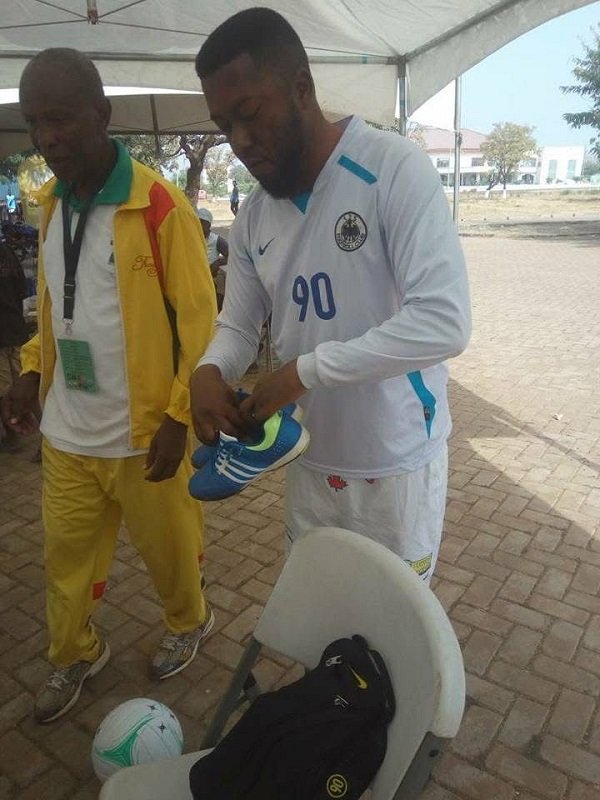
IN the annals of Ghana’s sporting history, certain individuals stand out not merely for participating in sport, but for transforming it.
Rev. Emmanuel D. Niikoi is one such figures. Revered as the father of modern netball in Ghana, is widely credited with rescuing the game from near extinction and transforming it into a vibrant, structured and nationally recognised sports discipline.
His journey reflects vision, resilience and an unwavering commitment to youth and sports development.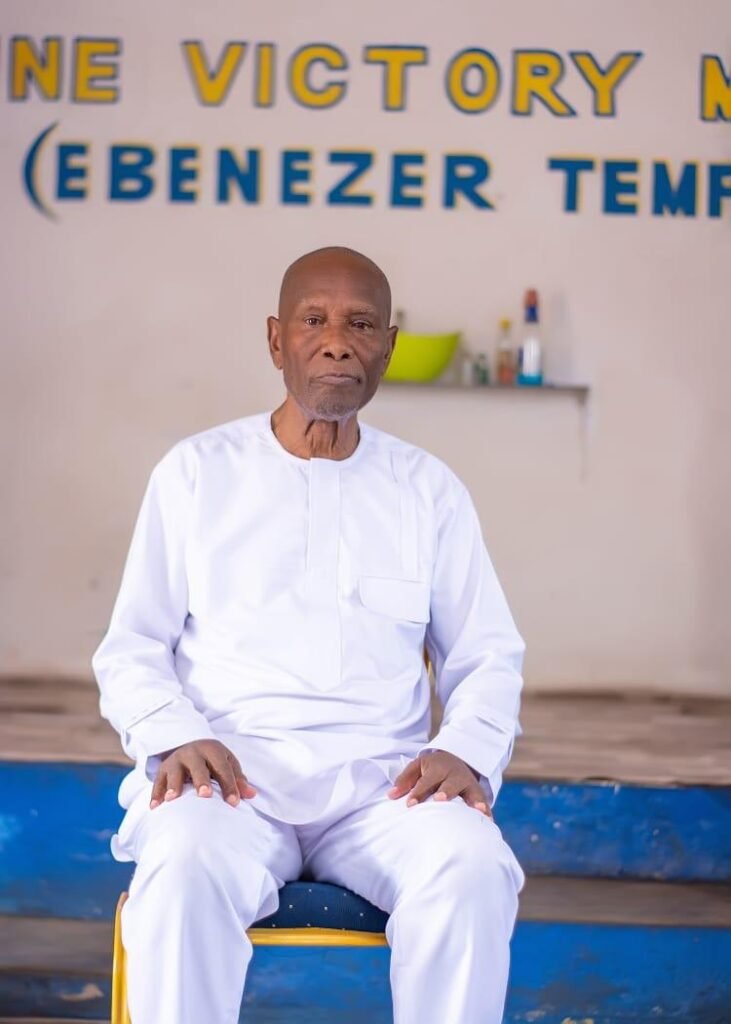
Netball was introduced to the then Gold Coast by Christian missionaries alongside formal education. By the 1960s and early 1970s, the sport had gained remarkable popularity in schools and colleges, ranking second only to football and, in some institutions, rivaling it in appeal.
However, during the 1974/75 academic year, the Ghana Education Service (GES) took a policy decision to step down netball in favour of basketball development. The decision dealt a severe blow to the sport.
Between 1975 and 1985, competitive netball virtually disappeared from Ghana’s sporting calendar.
That decision of the GES can be blamed for the current state of the sports that is producing heroines across the globe.
The revival of the game can be traced to 1985 during the Golden Jubilee celebration of the Ghana Broadcasting Corporation (GBC).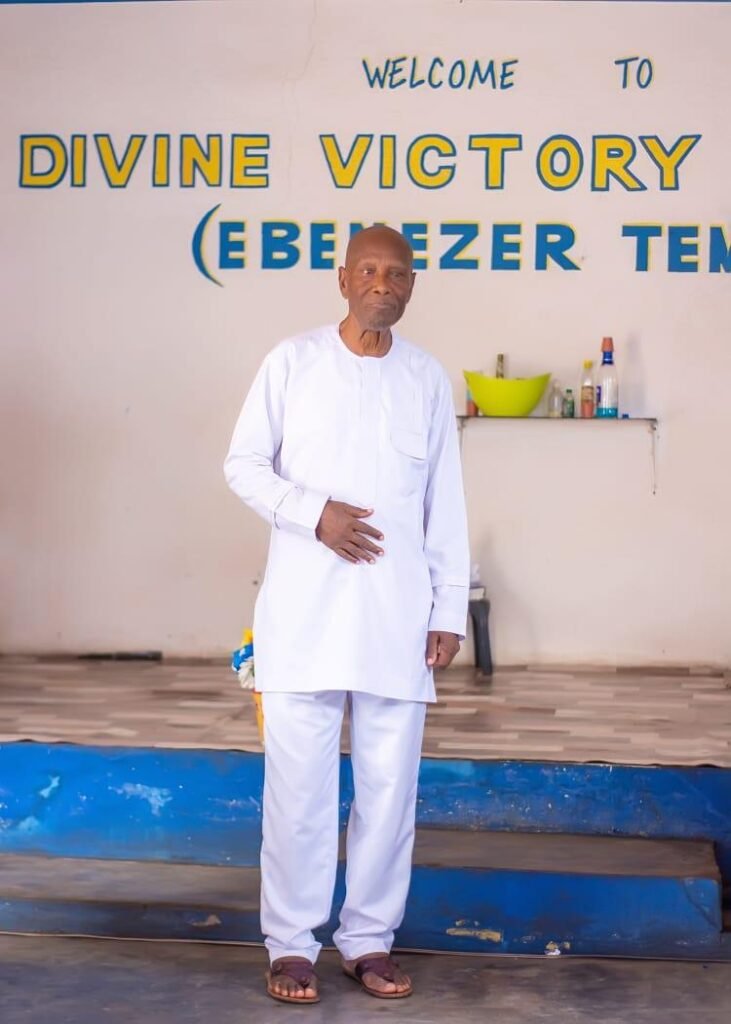
At the time, Rev. Niikoi was serving as Chief Editor (News) in the Radio Newsroom. Understanding both the historical importance and untapped potential of netball, he championed the inclusion of a netball tournament as part of the anniversary celebrations. The event reignited public interest and reminded many of the sport’s former glory.
Crucially, Rev. Niikoi did not allow the momentum to fade after the festivities. The GBC netball team formed for the tournament, aptly named “Golden Hands,” became the cornerstone of a national revival campaign.
With determination and personal sacrifice, he led tours across the country, using the team as a practical training platform.
He personally taught sports teachers under the GES the official rules of netball, reintroduced structured competition, and restored confidence in the sport’s viability.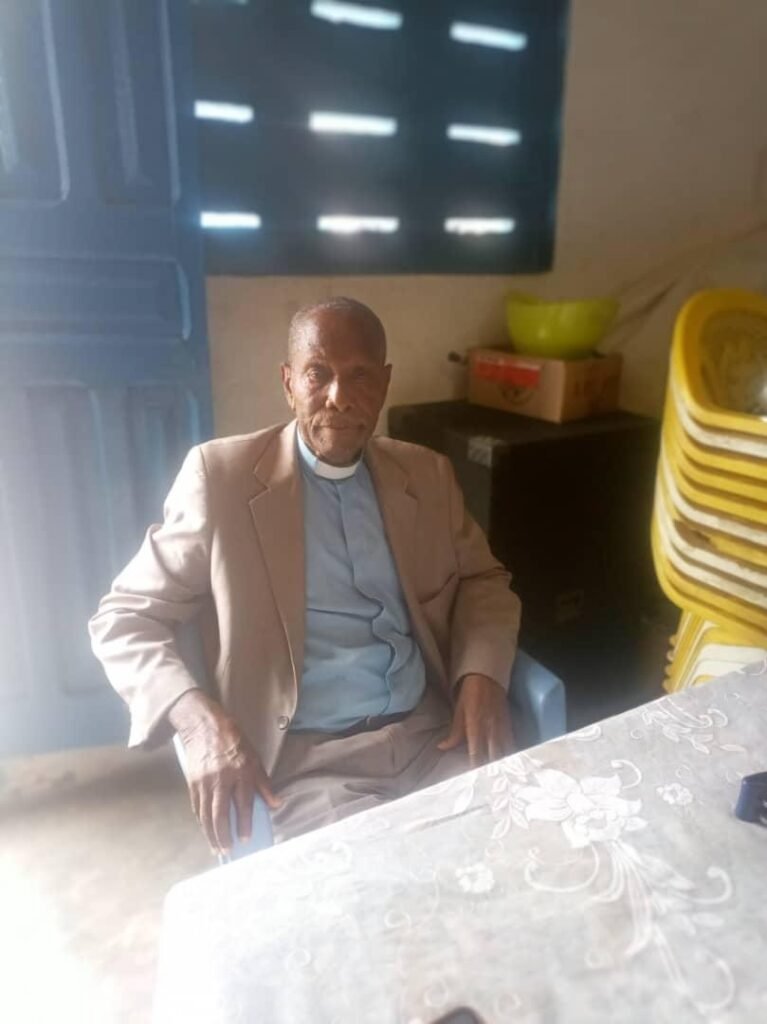
These efforts culminated with the formation of the Netball Association of Ghana in 1988, now known as the Netball Federation of Ghana.
In 1990, the association gained formal recognition from the National Sports Authorities, previously known as the National Sports Council (NSC), restoring netball’s status as an official sporting discipline.
This milestone marked the rebirth of organised netball in Ghana and cemented Rev. Niikoi’s place as founder of the national governing body.
Revival soon transitioned into consolidation. Over the years, Rev. Niikoi consistently lobbied educational and sports authorities to reintegrate netball into major school competitions.
His advocacy led to the sport’s reintroduction into the National Basic Schools Sports Festival, the Senior High and Technical Schools Sports Festival, the Colleges of Education games, and competitions under the Ghana University Sports Association (GUSA).
Today, netball is played across the entire educational structure in Ghana, from basic schools to public universities, a testament to his sustained and strategic efforts.
On the continental and global front, Ghana is a full member of World Netball and was a founding member of the Confederation of Africa Netball Associations (CANA), now Africa Netball.
In 2004, Ghana hosted the inaugural Africa Netball Cup of Nations in Accra and emerged champions after defeating Namibia in the final. The victory not only boosted Ghana’s sporting image but also validated years of groundwork.
In 2007, Rev. Niikoi was elected Director of Marketing and Media for CANA, serving a four-year term and contributing to the sport’s development across the continent.
In 2019, following governance reforms required by the International Olympic Committee to lift sanctions related to state interference in sports administration, national federations were mandated to adopt independent constitutions. Under this new framework, the Netball Federation of Ghana successfully drafted its constitution and conducted elections.
On June 19, 2019, Rev. Niikoi was elected the federation’s first President under the independent constitutional order which is symbolic and deserved recognition of decades of service.
Beyond netball administration, Rev. Niikoi also served two terms spanning eight years from March 2018 to March 2025 as an Executive Board Member of the Ghana Olympic Committee.
His presence on the board ensured that netball maintained visibility within Ghana’s broader Olympic movement.
A Bachelor of Arts graduate in Combined Honours (History and Law), Rev. Emmanuel D. Niikoi has trained numerous coaches and umpires nationwide, strengthening the sport’s technical foundation and ensuring sustainability.
His leadership style combines administrative discipline with grassroots engagement, making him both a strategist and a mentor.
From dormancy to dynamism, the resurgence of netball in Ghana bears his unmistakable imprint. Through advocacy, institution-building and capacity development, Rev. Niikoi has secured a lasting legacy.
Today, every netball match played in Ghana, whether at a basic school court or a university festival stands as living testimony to his vision and perseverance.
By Esinam Jemima Kuatsinu
Profile
Autism Awareness Care & Training: Pioneering autism care, inclusion in Ghana
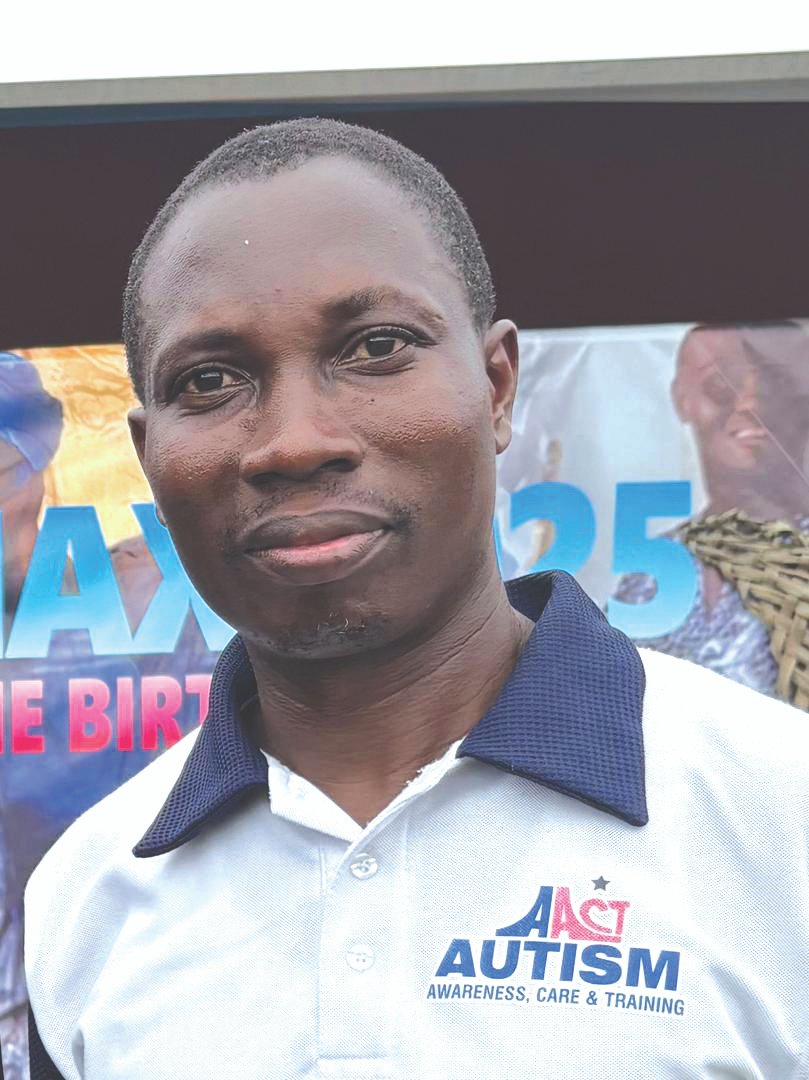
AUTISM Awareness Care and Training (AACT) is Ghana’s first autism-focused centre, playing a pioneering role in the care, education, and advocacy for children on the autism spectrum and their families.
Established in 1998, AACT began as a parent-support and training initiative at a time when autism was poorly understood in Ghana. Many families raising autistic children faced stigma, isolation, and limited access to information or professional assistance.
Over the years, the organisation has evolved into a full-fledged autism care and training centre, responding to the growing demand for specialised services and sustained nationwide awareness.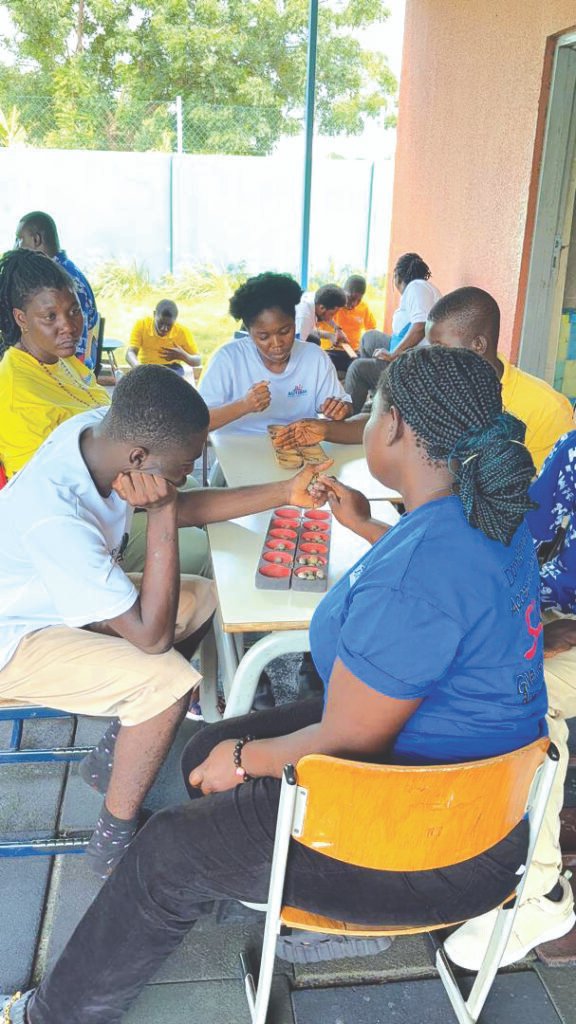
AACT is currently located in Haatso, Accra, where it operates a structured day programme serving about 25 learners daily. The centre provides a safe, inclusive, and supportive environment where children with autism are guided to develop essential life, social, and functional skills.
Programmes at the centre focus on independent living skills, vocational and pre-vocational training, functional academic skills, and therapeutic interventions. These activities are tailored to the individual needs of each learner, recognising that children on the autism spectrum learn and develop at different paces.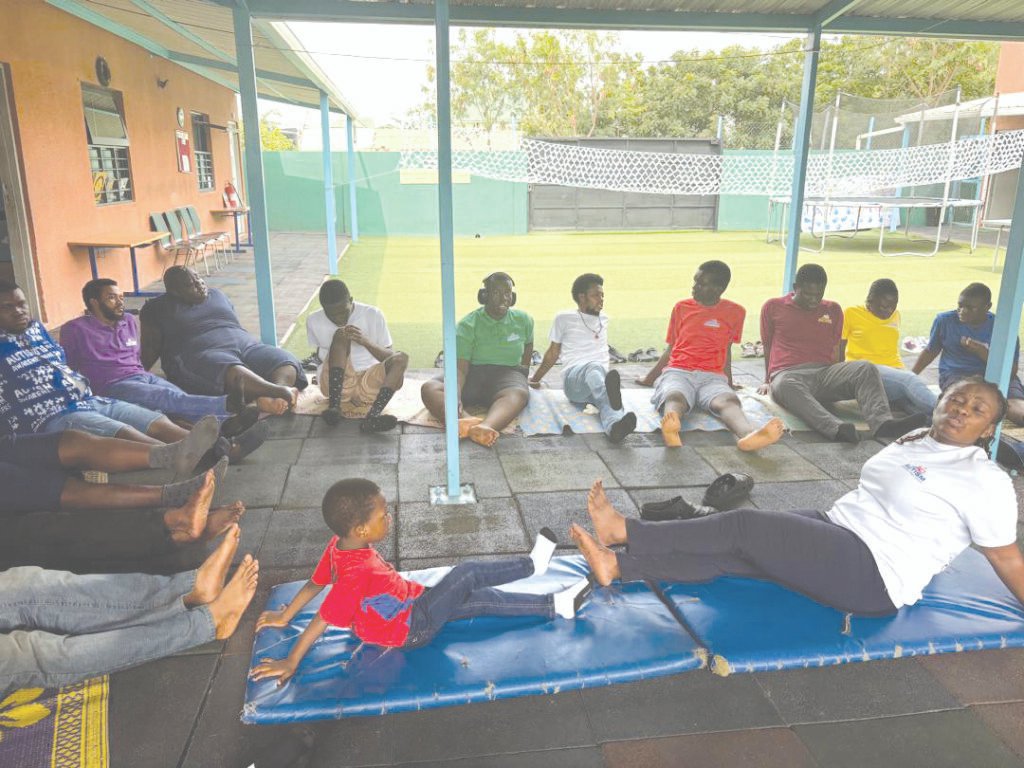
According to Abeiku Grant, Head of Programmes at AACT, the centre’s philosophy is centred on ability rather than limitation.
“Every autistic child is different,” he said. “Our work is to support them at their own pace and help them discover what they can do, not to focus on what they cannot do.”
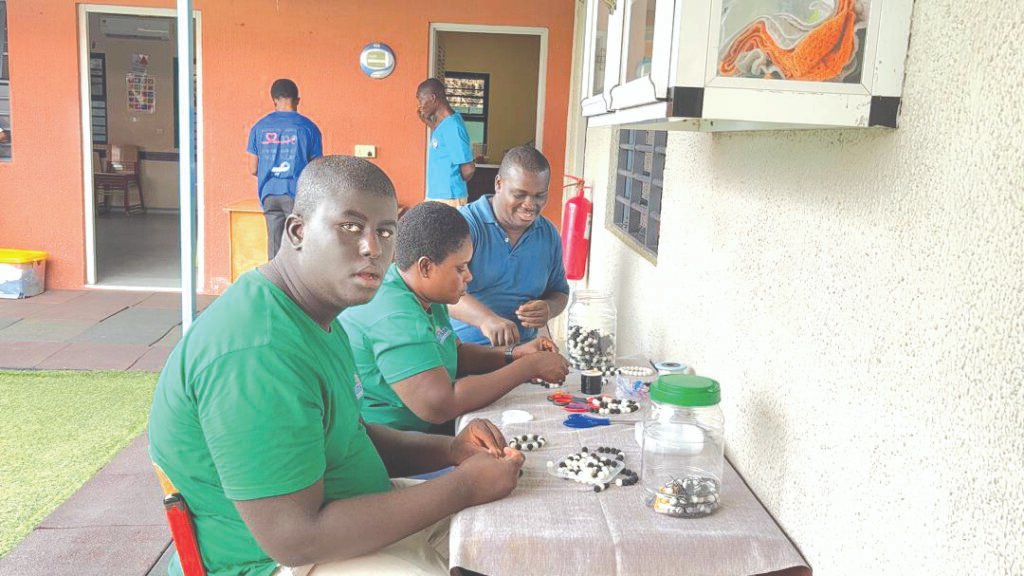
Beyond centre-based services, AACT places strong emphasis on autism awareness and advocacy, particularly within schools and communities. Many children with autism in Ghana continue to face rejection and exclusion due to stigma, misinformation, and the lack of trained personnel in educational institutions.
In 2025, AACT reached over 20 schools across the country, providing autism education to teachers, students, and school administrators.
The organisation also runs free teacher training programmes, equipping educators with practical knowledge and basic tools to support autistic learners in inclusive classroom settings.
“Many schools tell us they are not resourced or trained to handle autistic learners,” Mr Grant explained. “Instead of waiting for change, we decided to go to them and train teachers for free.”
AACT also engages learners directly, addressing widespread misconceptions about autism, including the false belief that autism is contagious or caused by bad parenting. These outreach programmes aim to build empathy among students and promote peer support for autistic learners in mainstream schools.
Another major challenge confronting families is limited access to autism services, especially outside Accra. With most autism centres concentrated in the capital, many families from other regions are forced to travel long distances or keep their children at home due to cost, stigma, or lack of support.
“Education is not meant only for typical children,” Mr Grant stressed. “Children with autism also have the right to education and care. No child should be hidden because of lack of understanding or opportunity.”
As part of its outreach work, AACT supports parents to overcome stigma and encourages social interaction for children with autism, believing that community engagement is essential for development and confidence building.
In December 2025, the centre received what it described as its largest donation of the year, raised by children from the Unmasked Mentoring initiative. According to the organisation, the donation was particularly significant as it demonstrated empathy and social responsibility among young people.
As a non-governmental, non-profit organisation, AACT depends largely on donations, partnerships, and goodwill to sustain and expand its work. Current needs include a minibus for community-based social activities, expansion of its facility to accommodate more learners, sponsorship support for children from financially challenged families, and funding to scale autism awareness programmes nationwide.
Looking ahead, AACT envisions a Ghanaian society that is inclusive, informed, and supportive of persons with autism.
“Our goal is a Ghana where children with autism are accepted and supported,” Mr Grant said. “Every child has potential. All they need is understanding, opportunity, and care.”
By Esinam Jemima Kuatsinu

